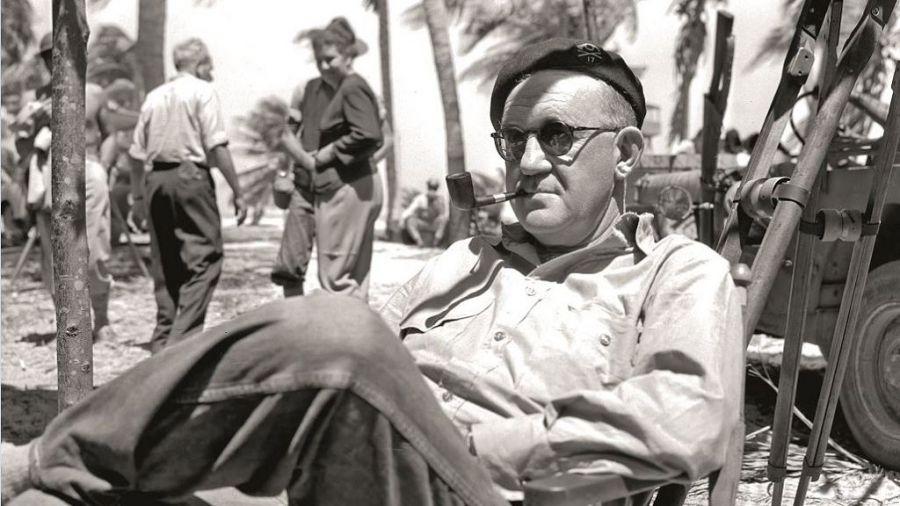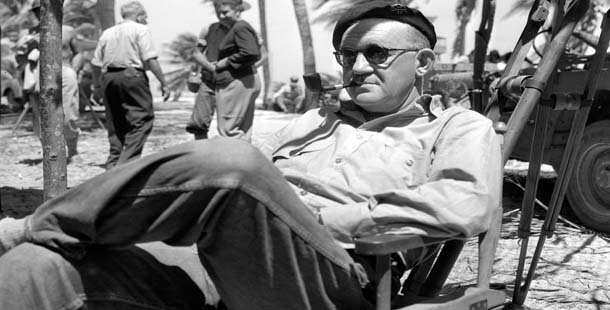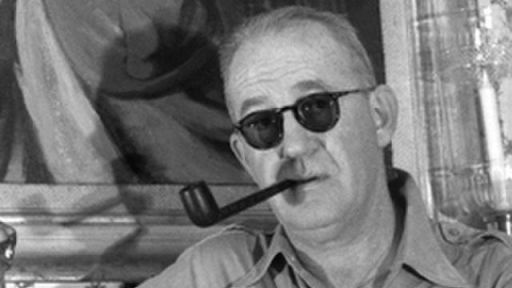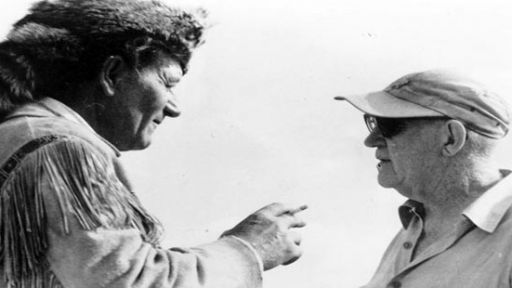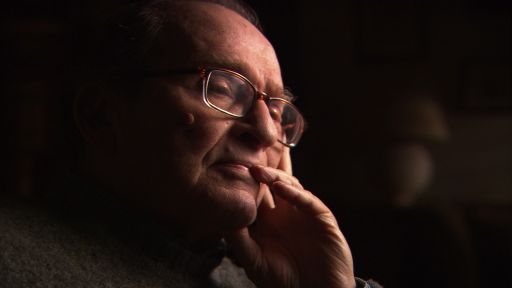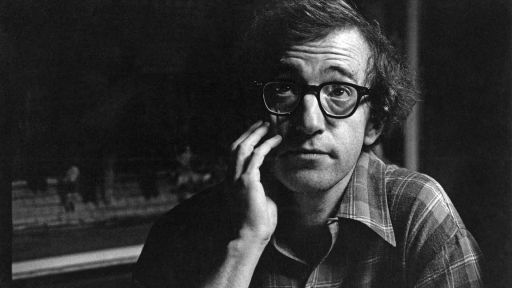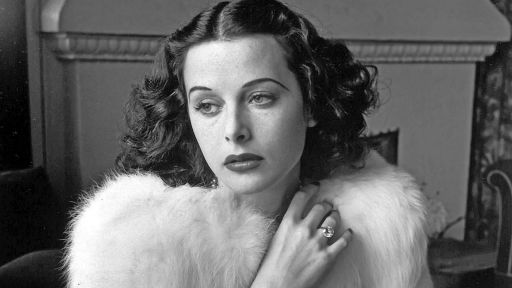Director Sam Pollard remembers the first John Ford/John Wayne film he ever saw: THE MAN
WHO SHOT LIBERTY VALANCE, which he watched in 1962 at a theater in Harlem along with his brother, sister, and uncle Sammie. “What stands out in my mind is the Paramount logo, the music, and Lee Marvin’s first words in the movie, STAND AND DELIVER. It was, for me, the magic of movies, being in a dark theater, transported to the world of the West — what my dad used to call shoot-’em-ups.” Below, Pollard and writer/producer Kenneth Bowser answer some questions about their documentary “John Ford/John Wayne: The Filmmaker and The Legend.”
Interview
Q: Why did you choose to build the film around the work these two artists did together, rather than a documentary about one or the other?
Kenneth Bowser: Our original plan was to make a film on Ford alone. But his career was so long and so filled with great films there was a danger we might be skipping a stone across the surface of that career. And at some point we just realized that so much of what was great and interesting about Ford stood out in his work with Wayne. By juxtaposing the paths they took as artists and as people we could illuminate the work they did together in hopefully a clearer way.
Q: You’ve described the relationship between the director and the actor as father-son, at least initially. Please elaborate.
Sam Pollard: Wayne and Ford met each in the 1920s. Wayne was almost 15 years younger than Ford. Ford was already a director with a reputation. It makes sense that it would be a father-son relationship. And Wayne would always see the relationship in that way. That’s why he always called Ford Pappy or Coach.
Q: John Ford was reportedly angry at John Wayne for not serving in World War II as he and many other Hollywood icons did. How did this affect their relationship?
Pollard: I don’t think Wayne not serving really had a strong effect on his relationship with Ford. Ford always treated Wayne horribly from his early days as a prop man to his years as one of the biggest stars in the world.
Q: Would John Wayne have become a star if not for John Ford?
Pollard: I think Wayne had the type A personality to become a star and I think it would have happened eventually. But when Ford came along with STAGECOACH that was his ticket to stardom and that is exactly what happened. But it would have happened at some point because he had worked and learned his craft for over 10 years. He was ready for the leap from Republic westerns.
Q: What was John Ford’s view of actors in general and John Wayne in particular? Did that view change over time?
Pollard: Ford was typical of directors from that period — they browbeat actors into giving a good performance. Ford did it with Wayne and many other actors, and even by the time he directed a picture like THE HORSE SOLDIERS (1959) he was still manipulating actors such as Constance Towers.
Q: Has there ever been a similar relationship in Hollywood history or was this relationship unique?
Pollard: Many actors and directors have worked together over the years — Scorsese and De Niro, Pollack and Redford, Bette Davis and William Wyler. But none had a relationship like Ford and Wayne.
Q: Through Ford’s films, John Wayne became a symbol of the American hero. How did Ford express his complicated feelings toward America?
Pollard: One needs only to watch THEY WERE EXPENDABLE, FORT APACHE, and THE SEARCHERS to see how complicated a man Ford was. These are not morally simple films. They present a man [Ford] with much on his mind and complicated feelings about everything from war to community relationships.
Q: Ford has been described as troubled and conflicted. How did this affect his relationship with John Wayne?
Pollard: Ford was no more complicated then any of us. He struggled with alcoholism, an unhappy marriage, bad eyes, and a loss of his physical well-being — the stuff that makes for interesting human beings and, in Ford’s case, a great artist.
Q: In your opinion, what is the best film the two men made together?
Pollard: The best film they ever made, in my opinion, is THE SEARCHERS.
Bowser: THEY WERE EXPENDABLE.
Q: What is the most surprising thing you learned about these men, or their relationship, while researching the film?
Pollard: The most interesting thing I learned from this film was that Wayne was a much more interesting man then I ever gave him credit for.
Bowser: The ambivalence toward America and what it was becoming during Ford’s lifetime is very different from the conventional thinking on Ford as a right-wing ideologue.
Q: Please discuss the actual making of the film.
Pollard: It was Ken who originated the project with AMERICAN MASTERS. I was brought on in May 2005 as the director. I then began to do extensive reading on Ford and Wayne for the next three months. We began pre-production in September with (associate producer) Brian McDonald setting everything in motion, finding a crew with our suggestions and lining up interviews. The major interviews like Scorsese, Milius, and Bogdanovich took a while. We didn’t actually interview those men until January and February. We started shooting in October, doing shoots in Portland, Maine, Seattle, San Francisco, and Los Angeles. And in November we went and shot in Monument Valley. Editing began in mid-November and took 13 weeks to complete. A whirlwind of a schedule.

